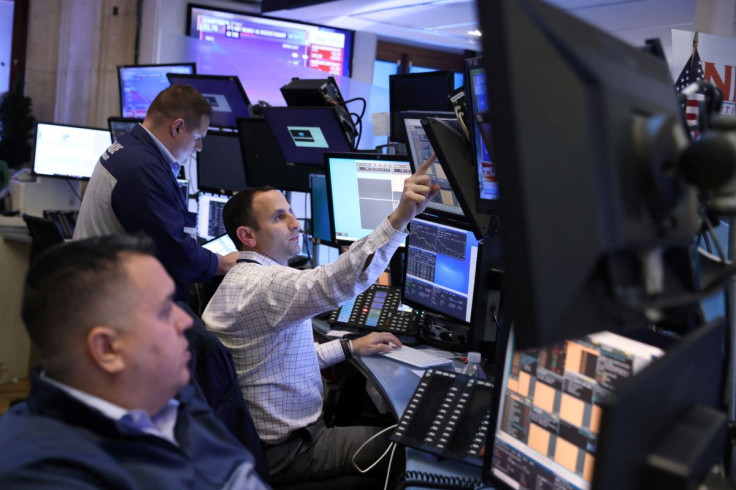Global Macro Funds Shine In Hedge Fund Industry, Proving Popular With Investors

Hedge funds that bet on bonds, currencies, stocks and commodities are among the industry's biggest winners this year easily outpacing growth and tech funds' returns and preparing to see significant inflows of capital as the stock market hovers near bear market territory.
So-called global macro funds returned 10.3% in the first four months of the year while the average hedge fund inched up 1.9%, according to data from Hedge Fund Research. The Standard & Poor's 500 index tumbled 13% in that period.
Over the last three years, global macro funds on average delivered positive returns but they also trailed behind the hedge fund industry's stronger returns.
Now with inflation surging and volatility ticking higher as central banks reverse years of monetary stimulus, the environment looks to be especially good for global macro funds.
"This environment will most likely lead to new inflows of capital to the strategy at the expense of other funds," said Eamon McCooey, head of prime services at Wells Fargo.
Global macro funds invest only about 17% of the industry's $4 trillion in assets, less than the roughly 30% invested by equity-focused hedge funds and the 28% invested by funds that bet on corporate events, Hedge Fund Research data show.
Through the first quarter, the latest available data, flows were picking up as investors sent $3 billion in new capital into these strategies, compared with $1.9 billion going into equity oriented funds. Overall $19.8 billion was added in the first quarter, HFR data show.
Scott Bessent, who runs Key Square Group after having cemented his reputation as a top global macro investor by helping billionaire George Soros engineer his famous bet against the British pound 30 years ago, told investors he is even more enthusiastic about the environment now than in early January.
"We are now seeing a series of longstanding economic, political, monetary and portfolio management systems breakdown," Bessent said in his letter. "What we see for the remainder of the 2020s is a cascading series of system collapses."
This is opening the way for a "large pipeline of vast opportunities," Bessent said, adding that events with a small probability of occurring are "becoming more numerous" as central banks are reversing ultra-loose monetary policies.
The firm declined to comment further on the letter.
Individual funds' returns are making the case, with blue chip Brevan Howard Master Fund fund up 12.04% this year through April while the tiny Trium Larissa Global Macro fund is up 30.9% in the first four months of 2022.
Bridgewater's Pure Alpha posted a return of 26.37% in the first four months. The firm told investors it is approaching capacity limits, according to excerpts of a letter seen by Reuters. A source familiar with the situation said the firm is considering returning capital to investors in the near term.
AQR's Global Macro Strategy is up 21% and told investors its strategy has benefited from high inflation and also from the end of fiscal stimulus.
Graham Capital Management's Quant Macro rose 21.7%, helped by commodities and foreign exchange.
"We are finally in an environment that we expect to stay really conducive for the macro strategy," said Darren Wolf, global head of investments, alternative investment strategies at global investment company abrdn, which is headquartered in Edinburgh.
To position themselves to take advantage of the shift in tastes and capital, some firms are adding strategies. Cinctive Capital Management hired former Brevan Howard trader Giles Coppel this year to build out a team as clients were asking for it. Earlier in the year Schonfeld Strategic Advisors earmarked $5 billion to the strategy.
Investors believe macro managers are likely to keep the momentum going, given that markets are expected to both bounce higher and lower with volatility. But there could be some pitfalls.
"You can have a problem when many managers are crowded in like trades," said Christian Lee, head of international alternative investments Itau USA Asset Management, which oversees $11 billion in a fund of funds.
"One example is the commodity trade. It's become quite popular and it's worked very well. Commodities can be some of the most volatile assets out there so one might want to be a bit cautious."
© Copyright Thomson Reuters {{Year}}. All rights reserved.





















